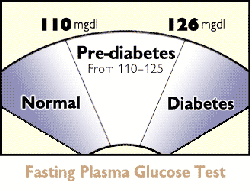A diabetic patient receives the month of Ramadan differently from others, because his feeding and health system during this month is different from that at any other time of the year. He must adhere to certain dosages of medication at specific times and must only eat certain types of food.
With the advent of this month, the changes he faces are manifested in many ways, such as his having to refrain from eating and drinking for long hours, the number of meals he consumes being reduced, and his daily activities changing. Therefore, a diabetic person must be mindful of these changes and their impact on him.
Some advice to diabetic people: There are two types of diabetic patients:
1. Those who must take insulin injections: They are of two categories:
· Those who are allowed to fast: These are patients who only need one shot daily, half an hour before the meal. They can take this shot immediately at sunset and break their fast half an hour later. However, they are advised to consult their doctors frequently in the first few days at the beginning of the month in order for him to decide the adequate dosage of insulin that suits their case and the nature of their work. These people are also advised to check their level of blood sugar regularly to avoid any sudden drop in it.
· Those who are not allowed to fast: These are people who need to take two or more dosages of insulin daily, in addition to them suffering from other diseases, like heart disease, for example. They must consult their doctors to find out if they are able to fast or not.
2. Those who are not required to take insulin injections: These are of a less severe category than the first type of diabetic patients, and who only consume pills to stimulate the pancreas in order to provide enough insulin to suffice the body and thus enable the person to act energetically. It is beneficial for this type of people to fast, unless they are required to take such pills throughout the day. They are advised to take one pill at the time they break their fast and another when having the predawn meal (Suhoor). There are other people who only require one pill a day, which they can take when breaking their fast.
There are other types of diabetic people whom we have not addressed, like those who are less than twenty years of age, pregnant diabetic women or those who have heart problems besides being diabetic. All these people are required to consult their physicians to decide whether or not they are medically allowed to fast.
Final remarks:
Diabetic people must consult their doctors before the advent of the month to decide whether they are in a situation that permits them to fast or not.
Diabetic people must consult their doctors before the advent of the month to get the proper dosages they need during the month (if they are permitted to fast).
They should avoid exhausting themselves while fasting, especially during the last two hours of the day, as this is the time when the blood sugar level is most likely to drop.
They should get in the habit of delaying the Suhoor to as close to Fajr (dawn) as possible.
They should always remember that being diabetic is a test from Allah and is something that He has decreed upon them. Thus they should be patient and content with what Allah has decreed in order to attain the best reward.


 Home
Home Discover Islam
Discover Islam Quran Recitations
Quran Recitations Lectures
Lectures
 Fatwa
Fatwa Articles
Articles Fiqh
Fiqh E-Books
E-Books Boys & Girls
Boys & Girls  Ramadan
Ramadan Fatwa Audios
Fatwa Audios Month of Mercy
Month of Mercy Women
Women Eed Al- Fitr
Eed Al- Fitr Food Recipes
Food Recipes Videos
Videos

 Prayer Times
Prayer Times












